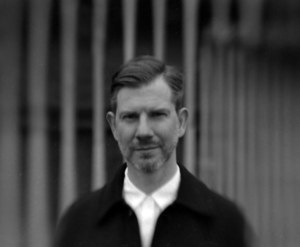2018-2010
She doesn’t remember that I promised her I would visit her on Thursday. I tell myself that’s why I don’t go. That she won’t notice anyway. The truth is, I am tired. Tired of watching my mother wither away. Tired of watching her become less and less.
When she dies, she is alone. I am not there.
She doesn’t remember how to meet a gaze. I search for something – anything – in the depths of her eyes, but they flit past mine, slipping away before I can catch them. She is drifting. At some point, a newborn baby meets another person’s gaze for the first time. I didn’t know that that ability too could be lost.
She doesn’t remember that she and dad got married after she was diagnosed. A quiet ceremony at City Hall – no guests, no new rings. Just the same worn bands they had slid onto each other’s fingers forty-four years ago when they got engaged. A love story slowly slipping through time.
She doesn’t remember that I visit her a lot. When she first moved into the care home for dementia, the staff told me that she often asked for her son. Now she doesn’t ask for anyone anymore. I miss her and yet, she is still here, breathing, still bound to this world. There is so little left of her now. Like the glow of a candlewick after the flame is snuffed out – a fragile ember clinging to the last remnants of light. Soon, it will vanish. For now, I focus on what remains.
She doesn’t remember that I am Jonas. We are sitting in the garden, the summer sunlight soft on her face. She is lost in a memory, speaking about me as if he is someone else, as if I’m not Jonas. Then she turns to me, smiling, and says: Jonas is in Gothenburg now. The words slip out of my mouth before I can stop them: If Jonas is in Gothenburg, then who am I?
She doesn’t remember what she has said. She doesn’t remember that lilacs smell when they bloom. She doesn’t remember where she hid my gift – whether for my birthday or for Christmas a week later. She doesn’t remember how to make conversation at parties. She doesn’t remember which room is mine, how to work a zipper or the word for snow.
She doesn’t remember.
But I remember her.
She Doesn’t Remember is a story that begins at the end and ends at the beginning. Here, Jonas Brun lays bare a devastating and deeply personal portrayal of dementia – of what it is to watch a loved one fade away, until they are nothing but a shell of who they used to be. In this heart wrenching story, Jonas writes his mother back to life; with each sentence, a piece of the person she was before the disease is brought back into existence – because he remembers. She Doesn’t Remember is a raw meditation of love, loss, and the cruel passage of time – and of how the ones left behind can remember for those who have forgotten.
Reviews
“It certainly is a paradox, that trigger points, well even the feeling of God’s absence, can evoke something so beautiful and hopeful as this novel. But that’s the way it is with authorships that intensify; where the words are charged by increasingly great experience, presence and human gaze.”
– Svenska Dagbladet (SE)
“She Doesn’t Remember has everything; absurdity, warmth, emptiness, despair and love. […] I will carry this book with me for far longer than any other. It moves you deeply, and Brun’s portrayals are deeply human.”
– Upsala Nya Tidning (SE)
“It is a compact, intense, almost claustrophobic story, but by shifting the chronology, Jonas Brun avoids leading the reader toward the inexorable end. Instead, through his own walk down memory lane, he brings his mother back piece by piece; he creates outlines of what she once was. It must be one of the most beautiful things a child can give to a lost parent, as well as what an author can give to a reader.”
– Tidningen Vi (SE)
“[A] bright portrayal of a mother’s journey through the darkness of forgetfulness.”
– Göteborgs-Posten (SE)
“In the midst of the dainty, the love, it becomes clear how merciless this disease is. The fact that he can, being a psychologist himself, describe how our memory works gives further bewildering dimensions to the text. And he finds both a form and a language for it all. […] His mother could not have been given a more tender memoir.”
– Sveriges Radio (SE)
“[…] with each sentence, the story moves closer to a healthier version of her […] until we see the outlines of a person who is more than her destiny. In many ways, it is a story about a loving relationship, or multiple ones, as well as a memoir and a collection of movements of one’s own creation.”
– Opulens (SE)
“[…] Jonas Brun’s literary, memoir-like portrayal [clenches] the reader with an iron grip.”
– Expressen (SE)
